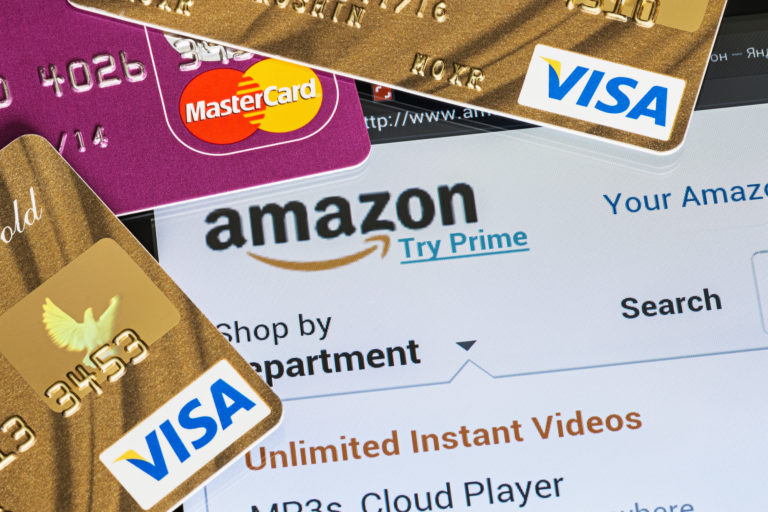Jeff Bezos has to be one of the great entrepreneurs of our time. Before he created an online store for everything, Jeff cut his teeth on Wall Street.
He found himself at D.E. Shaw, a bond trader that used borrowed money to enhance returns. Had Jeff stayed with D.E. Shaw, his family would still be well off. Probably not to the degree they are today.
But had he stayed, he wouldn’t have had the chance to change the world and leave a mark.
So when Jeff heard about this new growth thing called the internet, it was a no brainer. He took his savings and started selling books online.
‘I would never bet against Jeff Bezos’
What’s impressive about Jeff is not his wealth. It’s his ability to dominate multiple industries at the same time.
Who would have thought Jeff could disrupt retail and cloud storage at the same time? Mind you these are two industries, which are already intensely competitive.
Jeff’s accomplishments have been a surprise to Warren Buffett, that’s for sure. Talking later about Jeff, Warren said that not investing in Amazon.com, Inc. [NASDAQ:AMZN] was one of the biggest mistakes he ever made.
‘There are just certain people you do not want to try and beat at their own game,’ Warren told Beck Quick, ‘…and certainty Jeff Bezos would be number one.’
Warren’s right-hand man, Charlie Munger, voiced similar views. When asked if Jeff knows the limits to his skills, Charlie said:
‘Way better than you think. Bezos is utterly brilliant and utterly remorselessly ambitious. I would never bet against Jeff Bezos.’
Yet even after words like that from two of the smartest billionaires, Donald Trump seems eager to take on Jeff.
Down with Amazon!
A few weeks ago, Amazon decided to block their US site from Aussies. If you want anything from Amazon, you now have to go through the Australian version — amazon.com.au.
For some, this hardly warrants the following article. To others it is a huge inconvenience. The biggest difference between the sites is the range offered.
The US online store boasts around 500 million products. The Aussie version has a few hundred thousand. Even Amazon’s global store, which Aussies can use, only has about four million products.
If you’re one of those affected, send your thank you letters to the government. In a bid to ‘level the playing field’, the Turnbull government will tax overseas retailers 10% on all overseas goods under $1,000.
I’m sure Turnbull thinks it’s a win for Aussie businesses. Yet all he’s really doing is propping up firms unwilling to change and hurting Aussie consumers.
It’s a vote grab essentially. And now it’s Donald Trump’s turn.
The US will now require online retailers to pay varying state taxes where their goods are shipped. So while Amazon is incorporated in Delaware, where there are no sales taxes, they’ll now have to pay sales taxes on goods shipped to New York or California.
The Dow Jones reports:
‘The court, in a 5-4 decision written by Justice Anthony Kennedy, ruled that states can require internet merchants to collect the taxes even if a merchant has no physical presence in the state.
‘The court cited studies suggesting that the current rule costs states up to $US33.9 billion a year in uncollected sales taxes.
‘Justice Kennedy said the old rule “limited states’ ability to seek long-term prosperity and has prevented market participants from competing on an even playing field.”
‘The ruling likely will spell the end of an era in which consumers could save on taxes by purchasing goods online instead of from local merchants.
‘The justices’ decision overturned a 1992 high court ruling involving mail-order businesses that said states can only require tax collection by merchants who are physically located in the state’s borders.
‘The ruling is a victory for states that argued tax-free internet sales were costing them billions of dollars in revenue. It is also a big win for brick-and-mortar stores, which have to compete against online rivals that don’t have to collect the taxes on internet purchases.’
So tell me again, why do states need an extra US$33.9 billion? Surely what they gouge from US firms and citizens is enough already, no?
The sky is falling in China
As you’d expect, Amazon and other US internet retailers fell on the news. Just another sector to fall victim to US taxes. If you cast your eyes to Asia, the same situation plays out. Asian stocks are falling, especially in China, thanks to Trump’s tariffs.
Reported by the Australian Financial Review:
‘The outlook is no better in China, where the Morgan Stanley strategists now forecast the CSI 300 Index to fall into a bear market that will last for the next year. Alongside the standard emerging-market and trade-war pessimism, deteriorating liquidity conditions in China and a weaker yuan will also weigh on stocks, they said.’
There’s no shortage of bears in Asia that’s for sure.
Yet you’ve got to remember these are all 12-month expectations. By simply extending your time horizon; you’ll see opportunities in China and maybe even Amazon that others are missing.
My advice: keep calm and think long-term.
Your friend,
Harje Ronngard
